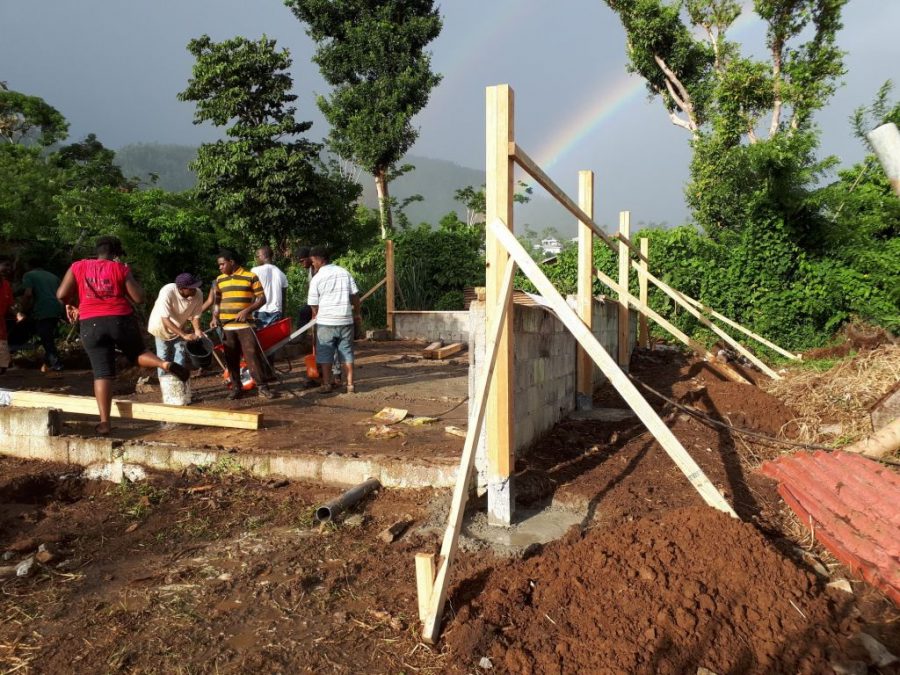Imagine taking your classes in tents.
For hundreds of students attending Dominica State College, that wasn’t a work of make-believe. It was real life.
On Sept. 18, 2017, Hurricane Maria hit the tiny Caribbean island of Dominica and destroyed everything in its path. According to an article posted by The New York Times, Dominica was hit with 257 kilometre-per-hour winds. Buildings were blown away, roads crumbled and many people were left homeless and without power.
Last spring, Algonquin was approached by Colleges and Institutes Canada (CICan) to propose an idea of sending a team of professors from Algonquin to Dominica State College to teach civil engineering students how to build proper structures. Algonquin’s international department was also involved in this project.
Academic Chair of Construction Trades and Building Systems, Shaun Barr, was one of the faculty members approached by CICan. In June 2017, Barr and Professor of the Building Construction Technician and Carpenter Apprenticeship program, Mike Nauth, went to Dominica to assess the damage.
“We went to Dominica State College, and several job sites and we saw the devastation on the island. It ripped the heart right out of you,” Barr said.
“The college was almost destroyed. Their carpentry and refrigeration shop were gone,” he said.
A year later, Dominica’s construction companies are still trying to fix the damage but there is just too much. For this project, Nauth built a curriculum to show students how to build structures that can withstand hurricane force winds.
In July, Nauth and Dan Drummond, a part-time professor at Algonquin, went to Dominica for two weeks to share their knowledge. The original buildings that were destroyed were not built to withstand strong winds.
After the roofs were blown right off the buildings, the rain came in which caused mold to appear. The students were shown how to properly build structures by strapping the foundation and tying it into the ground so when high winds come up nothing would move.
The agricultural program at Dominica State College relies on its poultry house and when it was destroyed, the program had to be put on hold. This program is important to the country, as it works to strengthen its agricultural infrastructure.
After the hurricane, students at Dominica State College had to finish their semester by having classes housed in tents. The hope is that the roofs were put back on in time for the start of this school year in September.
Tools were brought over for the civil engineering students as well as safety gear. Cordless tools that are battery operated will remain in the students’ shop as well as boots and safety glasses.
Dominica’s prime minister and the dean of Dominica State College were happy with the results. There is still a lot of work to be done in Dominica, but now with more knowledge and tools.
Barr says he had never done anything like this before and that it was very eye-opening.
“I was just blown away by the whole experience,” said Barr.


